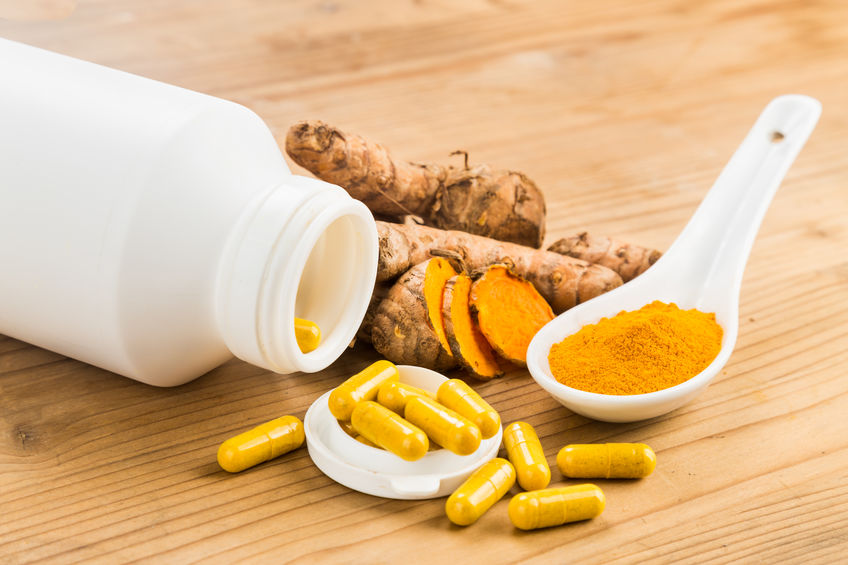It is crucial to know when is the best time of day to consume turmeric to reap the maximum benefits without experiencing side effects. Turmeric supplements can help improve cognitive function, boost antioxidants, and alleviate depression as well as to lift overall mood. The best time to take turmeric supplements is in the morning followed by a second dose in the afternoon. This way, you can experience the full effects of the supplement throughout the day – when you need it the most. Read on to delve into the best time of the day to use turmeric, which is the highest quality turmeric out there, and the benefits this spice of life offers.
Are You Using the Best Turmeric Supplement?
Click Here >>> Read Turmeric MD™ Reviews And Discover What You're Missing
What Makes Turmeric So Potent?
Turmeric belongs to Curcuma longa, a part of the ginger family. Characteristically, it looks most similar to the ginger root, with a more golden, yellow hue. Turmeric contains over 300 beneficial compounds and nutrients including calcium, fiber, beta-carotene, vitamin C, niacin, iron, potassium, magnesium, and others. But Curcumin, an active polyphenol compound, is the true secret behind turmeric’s amazing superpowers. Curcumin is what gives the spice a rich golden color and has been the subject of multiple studies in the health industry. These include positive effects on fighting inflammation and oxidative stress.
The Benefits Of Turmeric
The golden spice has been in use for centuries and doesn’t seem to be leaving our spice rack or medicine shelves anytime soon. Turmeric has extraordinary benefits from curbing inflammation to improving brain function, and will certainly put a pep in your step. Keep reading to find out more about the benefits and the best time of the day to take turmeric.
The use of turmeric dates back to almost 4000 years ago in India and was used as the main component in religious ceremonies, a fragrant spice, a dye, and as an Ayurvedic medicine to relieve various ailments. The earliest studies date back to 250 BC, where the Susruta’s Ayurvedic Compendium, an ancient Sanskrit text recommended using an ointment made of turmeric to relieve symptoms brought on by poisoned food. To this very day, turmeric is still a popular ingredient in Ayurvedic and western herbal medicine and still carries the nickname ‘the spice of life’ due to its incredibly potent healing properties. Some stand-out benefits include:
Natural Anti-Inflammatory
Inflammation is an important part of the human anatomy. It helps us fight off foreign pathogens and signals the body to begin the healing process. Acute inflammation is beneficial short term, however, it can cause issues when inflammation becomes chronic and starts to attack the body. In some cases, long term inflammation can lead to various diseases like Alzheimer’s Disease, metabolic syndrome, and heart disease.
Taking an anti-inflammatory can help combat chronic inflammation. Turmeric has proven to be just as effective as some synthetic drugs, without any of the common side effects. Research has revealed that turmeric fights inflammation on a molecular level by blocking NF-kB. NF-kB is a protein responsible for inflammatory responses within the genes as well as the production of inflammatory cytokines. NF-kB has also been linked to various other chronic diseases.
Fights Oxidative Stress
Oxidative stress may lead to a multitude of diseases and premature aging. Usually, harmful free radicals that react negatively with DNA, proteins, and fatty acids, can cause harmful oxidative damage. This is why it is important to get enough antioxidants in your diet to combat these effects. Due to the chemical structure of curcumin, it acts as a potent antioxidant that helps neutralize harmful free radicals. Turmeric also helps enhance the body’s natural antioxidant enzymes.
Improves Brain Function
While there is no specific treatment for progressive disorders like Alzheimer’s Disease, prevention is always better than cure. Thanks to the potent antioxidant properties of turmeric, it helps to fight oxidative stress in the brain. The powerful anti-inflammatory properties also help to reduce the risk of developing these neurological disorders.
Turmeric also helps increase levels of BDNF (brain-derived neurotrophic factor), a growth hormone linked to improving memory and a lower risk of developing Alzheimer’s and depression.
Turmeric Supplements
There are hundreds of ways to take turmeric every day. Some advise you to mix a spoon of turmeric and milk while others recommend chugging a shot with coconut oil. Unfortunately, simply eating the spice alone does not give you the maximum benefits of the magical plant. More important than knowing what time of the day to take turmeric, is the quality of the turmeric you’re using.
The average curcumin supplement has a low absorption rate and low bioavailability. This means that the body has difficulty fully absorbing the turmeric in an efficient manner, despite the vast amount of beneficial compounds it contains. The spice itself only contains 3% curcumin, which may take a very long time to see any results. Curcumin C3 Complex® is a patented and clinically researched composition of 3 curcuminoids. It is also the proud owner of the Scientific Achievement Award.
Good quality turmeric supplements like Turmeric MD™ contain 1500mg of turmeric Curcumin C3 Complex® that contain a standardization of 95% natural curcuminoids. Fortunately, turmeric now comes in an easy to take and convenient capsule form. The difference between supplements and the spice is the percentage of curcumin and the absorption rates.
In addition to this, high-quality supplements like Turmeric MD™ also add in another ingredient such as BioPerine® (Piperine). This thermogenic ingredient enhances absorption, making it easier for the body to transport the nutrients and utilize them. Piperine is a bioactive alkaloid found naturally in black pepper, which helps boost absorption by a whopping 2000%.

Should I Take Turmeric On An Empty Stomach?
Turmeric supplements work best on an empty stomach and should be taken at least 30 minutes before meals. Turmeric is also fat-soluble, which means that it dissolves best in fat. After the 30 minute window, eat a healthy meal that includes fatty foods like avocado or coconut oil. This helps to ensure the turmeric dissolves easily and the body can absorb it in an optimal manner.
How Long Does It Take Turmeric To Work?
Since turmeric is fat-soluble, it takes a bit longer to feel the full effects in comparison to water-soluble vitamins. Fat-soluble nutrients first need to be absorbed by fat globules in the intestines before being transported to the rest of the body. Due to this process, it will take a while to reap the benefits. Once curcumin levels start to build up, you should feel noticeable results within 4 to 8 weeks depending on your current state of health and body mass.
The Bottom Line
If you have ever wondered what turmeric is beneficial for, it is simply beneficial for almost every common ailment. The golden spice of life has been the topic of multiple modern-day studies. It has demonstrated just how well-tolerated and effective it is against inflammation, depression, and fighting oxidative stress. If you are considering including a turmeric supplement in your daily regime, always make sure you opt for a high-quality supplement like Turmeric MD™ to ensure you get a safe and effective dose in every bottle!


